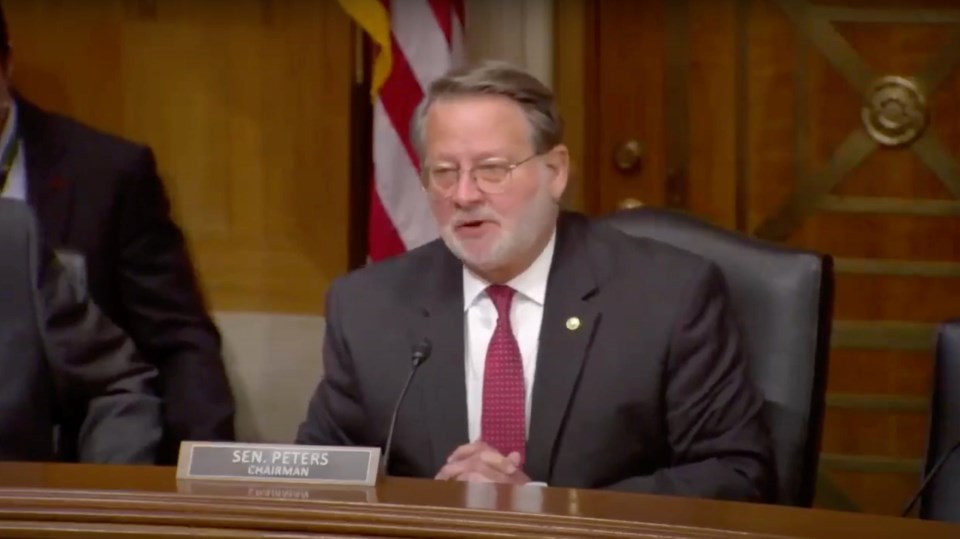NEWS RELEASE
OFFICE OF SEN. GARY PETERS
*************************
WASHINGTON, D.C. – Legislation led by U.S. Sen. Gary Peters (D-Mich) to improve screening practices at airports and ports of entry that repeatedly affect individuals who pose no danger to national security and ensure counter terrorism resources are used effectively has advanced in the Senate. The bill will help evaluate a ballooning set of screening processes, some related to the terror watch list, by improving transparency about these processes and by requiring the Homeland Security Secretary to reform the redress process to allow affected Americans, who are not a national security threat, to seek an effective remedy. The bill was passed by the Senate Homeland Security and Governmental Affairs Committee where Peters serves as Chair, and now moves to the full Senate for consideration.
“Americans who pose no threat to national security should not face a maze of travel screenings and a flawed redress process,” said Peters. “My legislation will bring more transparency and accountability to our travel screening practices to ensure that the government is effectively protecting the nation, and agencies can carry out their missions while also protecting the civil rights and civil liberties of travelers.”
In December 2023, Peters published a report that revealed that well-intentioned screening practices at airports and other ports of entry have ballooned over time, often at the expense of travelers who pose no threat to national security. Members of the Arab, Muslim, and South Asian American communities report that they are unfairly targeted by these screening practices; however, federal agencies do not effectively assess whether discrimination occurs in these processes.
These practices are intended to protect the U.S. from terrorists and other security threats, but these practices have expanded into a layered and duplicative screening system that is difficult for the government to explain, and for American citizens to understand why they have been flagged for secondary screening or how they can seek real redress.
The Enhanced Oversight and Accountability in Screening Act would require DHS to provide Congress with a plan to meaningfully reform the redress process and improve the experience of individuals who believe they have been wrongly subjected to additional screenings or have experienced delays in travel.
The bill establishes a DHS Screening and Watchlisting Advisory Committee, comprised of both governmental and non-governmental representatives, to advise the Secretary on the development, refinement, implementation, and evaluation of security processes. To enhance transparency, the bill also mandates the DHS Secretary to provide Congress with a report assessing the effectiveness of secondary screenings and inspections by the Transportation Security Administration (TSA) and U.S. Customs and Border Protection (CBP).
*************************



